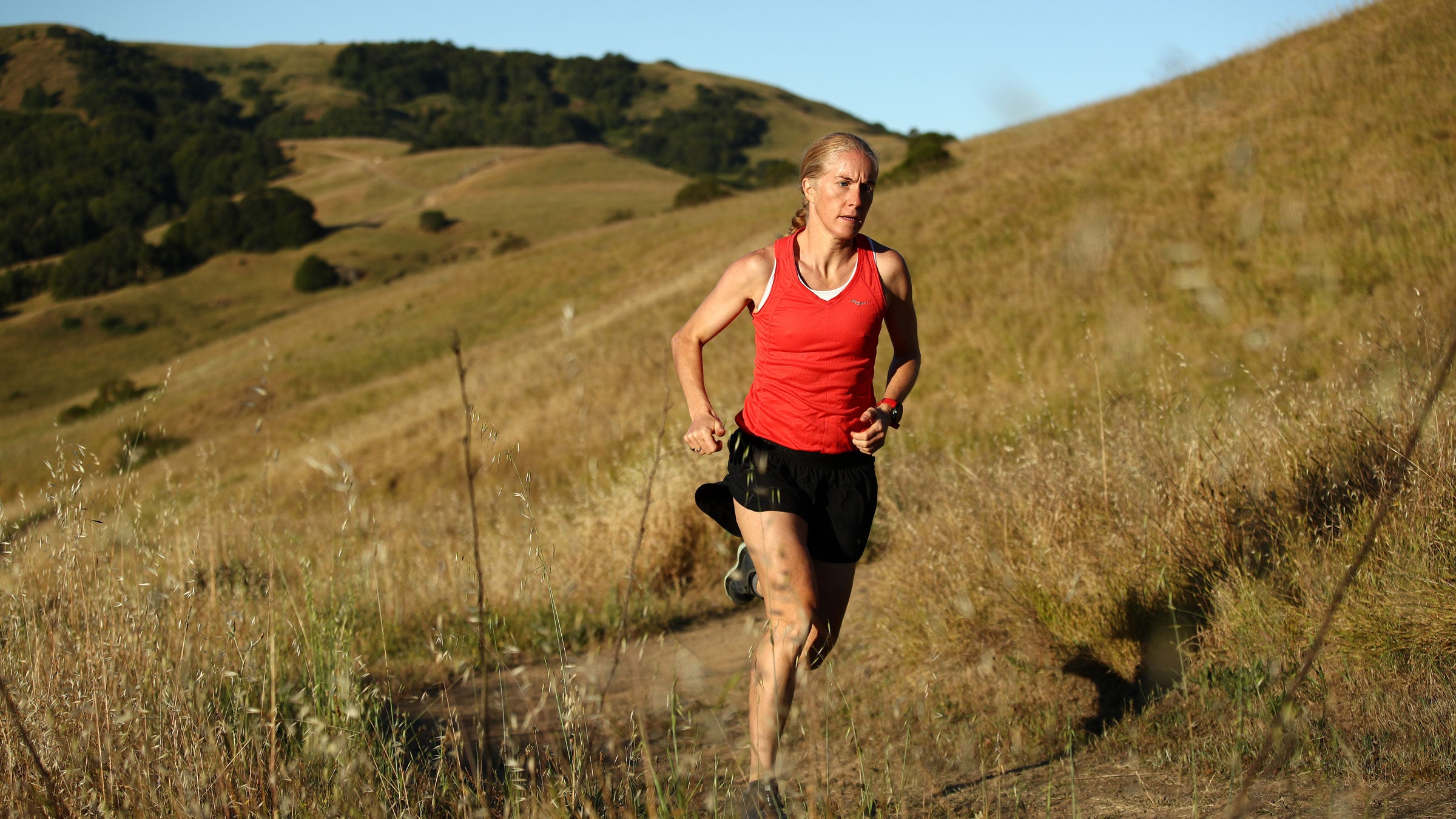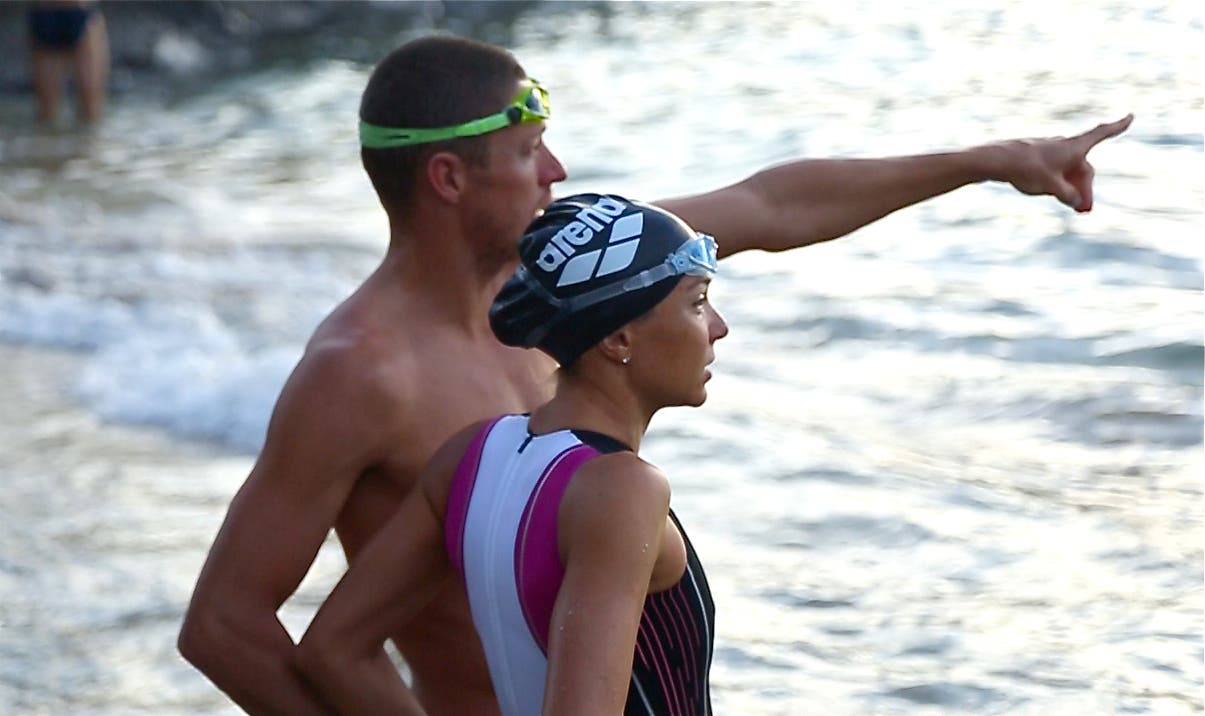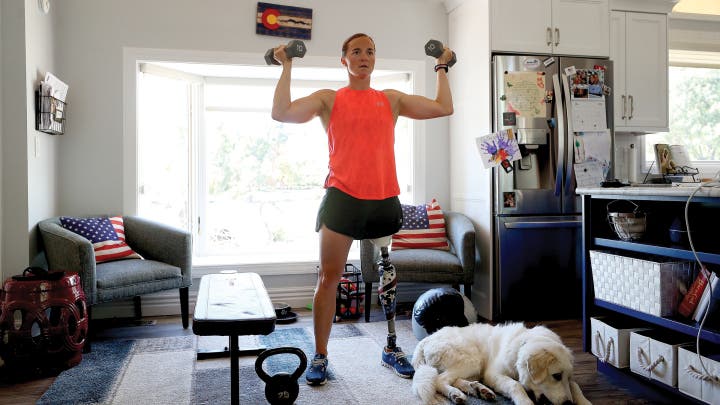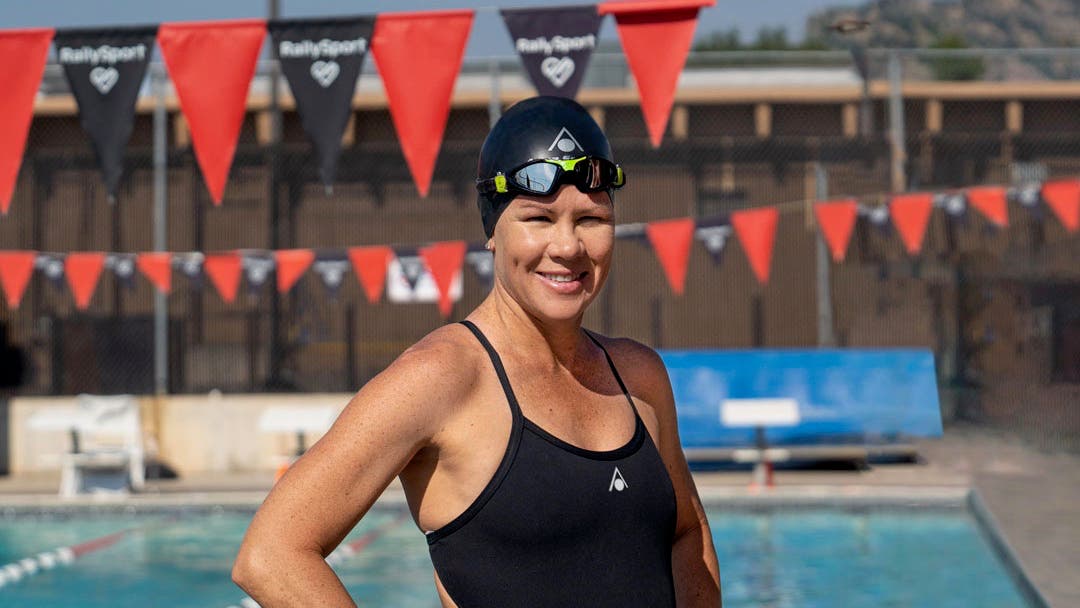Retirements, Recoveries, and Pregnancies: How Pros Are Using This Lost Year

Sarah Piampiano trains at the beginning of the COVID-19 pandemic. She recently announced that she is pregnant. (Photo: Ezra Shaw / Getty Images)
It’s no secret that this year has left a lot in its wake—health, jobs, plans. And it’s no surprise that for professional triathletes, who essentially had no work in 2020, it’s been a bit of a lost year. A lost year can be especially tough in a career that’s physically limited by age. You only have so many Ironmans in you, so many years to win a world title.
According to Cody Beals, a multi-time Ironman champ and popular Canadian athlete, he lost nearly 40% of his income this year, between prize purses, appearance fees, and sponsor bonuses for race performances—and he’s one of the better-off athletes because his sponsors continued to support him. What he and many others expect to see is simply some pros disappear after this year and not return when racing resumes, because they had move on to other jobs or find other sources of income. It’s also clear that many who intended to move up to the elite ranks this year did not—just take a look at the Strava files of the top age-groupers in any of the Ironman VR races and many acknowledged that hadn’t planned to still be racing age-group.
According to Ironman, there were 1,081 pro athletes registered with the company in 2019; this year, there were just 704. While that number is likely impacted by the timing of COVID cancellations, we won’t know for sure how many will return in 2021 until well into 2021.
Retirements

Some athletes made their retirements formal during the COVID season. Jesse Thomas retired officially on our podcast. 2013 Ironman World Champ Frederick Van Lierde did one last local race and announced his retirement. And Luke McKenzie, Ironman champ and second at Kona, and his wife, Beth McKenzie, both retired from the pro ranks in order to focus on their growing business and their family. For all of these pros, they had already decided 2020 was going to be their last year—and COVID just altered those plans for better or worse.
“Beth and I had set Challenge Roth as our final professional race,” said Luke, but then that got canceled—and so he was just kind of done instead. “Beth kept optimistic some events would go ahead later in the year (Sunshine Coast 70.3 and IM Cairns went ahead recently), but I didn’t have the desire to keep training for something that may or may not go ahead.”
He had a small retirement party at home, following current health guidelines, and he reminisced with friends about triathlon back in the ’90s. And that was that.
“It is a strange time to retire, but I think it’s a similarly strange and difficult time to just keep going. I feel a bit lucky that I had my retirement ‘planned’ this year,” said Beth, who got those last two Australian races in. She wanted one last hurrah and, since she had quit the sport before after a doping ban and positive test for ostarine that she says came from contaminated supplements, she wanted to go out on her own terms now—even if that final race didn’t go as planned. “Even a bad day in triathlon is better than not having the opportunity to race and I happily (death) marched to the finish line.”
Recoveries

Not everyone is ready to be done yet, though—one last hurrah or not. For the Olympic athletes, one extra year could be either a benefit or not—depending on where you’re at in your career. Paralympian Melissa Stockwell will be 41 when Tokyo happens next year. When the postponement news came, she understandably had doubts. “A fleeting moment of ‘Do I want to keep going?’” she said. “A year to some people is nothing, to others it feels like an eternity.”
But she’s using the extra year to teach her kids how to follow their goals. Many of the pros are using this year to do something they couldn’t otherwise: working on weaknesses they needed extra time to improve, chasing other adventures, focusing on relationships that go by the wayside during heavy training. Tim O’Donnell got to finally have a birthday party for his 40th, instead of being in Kona that week.
And Angela Naeth is using the year to undergo intense treatment for Lyme disease. On our podcast, she explained how this has finally given her some time without races, without having to try and string together a few good months, to really get better. She hopes it’ll pay off.
Pregnancies

There’s one more thing you could do with a year of no racing. It’s what Mirinda Carfrae and Sarah Piampiano are doing. You could use the lost year and make it not so lost after all.
Starting a family is a tricky thing for pro female athletes, because they lose the season—and then they don’t know how well or how quickly they’ll recover and come back. It’s hard to take 12-18 months out of the peak of your career, but it’s also hard to wait until you’re done and older.
Not this year.
For Piampiano, an Ironman champ, it was something she and her husband were already weighing. They wanted to start a family and she had thought 2020 would be her last season of racing, but then races got canceled. At first, she wasn’t sure: Do you wait or try now? They tried now.
Both her and Carfrae, the four-time world champion, feel like they have unsettled business on the Big Island and hope to finish that when racing resumes. Both also already have their spots for the Ironman World Championships in Oct. 2021. That means they won’t have to worry about qualifying as they come back post-childbirth next season. Carfrae is due on New Year’s Eve and hopes to be back racing by the summer, and Piampiano is due at the end of February (which, she said, was starting to cut it a little close).
“Now, looking back, it was the perfect decision,” said Carfrae. As soon as things started to get canceled, she and her husband, O’Donnell, decided now was a good time; when it looked like Kona would be rescheduled to February, she thought she might have to miss it—but that worked out too. “Couldn’t have planned out better for us.”
There are a few other pros taking this route and hints are there are more pregnancy announcements expected soon. “Why wouldn’t you have a kid right now?” said Piampiano. “It’s like a freebie year.” It might be lost for triathlon, but not forever and not for everything else.